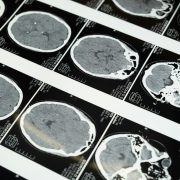Have you ever been in a situation where you thought you were experiencing a severe mental health issue, but the diagnosis didn’t quite add up? You may have gone to a psychiatrist for help, only to discover that your psychiatrist sees nothing wrong or is focused on a completely different concern. Unfortunately, being misdiagnosed is a common occurrence in the medical and mental health fields and it can lead to confusion and distress as you try to cope with your mental health condition. In this article we will explore why incorrect diagnoses occur and how their negative impact can be reduced moving forward.
Why You Need An Accurate Mental Health Diagnosis
A mental health diagnosis is an assessment that evaluates your symptoms and behaviors to determine whether you have an emotional, behavioral, or mental health disorder. It is based on a variety of factors such as your clinical history, familial information, lab results, and observations from healthcare providers. Today, well-trained mental health professionals use diagnostic tools to accurately evaluate mental health conditions and establish successful care plans for patients struggling with concerns such as depression and anxiety. Accurately diagnosing mental health issues is essential as it guides the type of treatments used to help you cope more effectively with your condition.
If you receive an incorrect diagnosis, the medicines you are prescribed may be ineffectual, and as a result, your symptoms may increase in frequency and intensity. It is also possible that inappropriate medication or treatment methods may directly contribute to your condition becoming much worse. In these types of situations, the professionals recommend contacting a qualified attorney to get the right legal advice. You may be entitled to compensation if you are a victim of medical malpractice.
How To Determine If You Have Received An Incorrect Mental Health Diagnosis
If your symptoms seem to persist despite your attempts at treatment, it is possible that you may have received a wrong mental health diagnosis in the past. If so, the situation may be disconcerting and cause you to feel a measure of anxiety. To determine if you did receive an incorrect diagnosis, look for discrepancies between your experiences and the diagnostic criteria outlined in the Diagnostic and Statistical Manual of Mental Disorders (DSM). If something seems off or doesn’t fit, take a note of it and talk to your therapist about it. You can also speak with other mental health professionals for fresh perspectives. Their new insights can help to clarify whether or not your initial diagnosis was correct.
Consequences Of Receiving An Inaccurate Mental Health Diagnosis
Receiving an inaccurate mental health diagnosis can be extremely disheartening and costly in terms of your time and money. In many cases, that can lead to treatments that may not address the actual problem, meaning there is a delay in getting the help you really need. This lack of progress may frustrate you and further exacerbate your issues. You may also lose trust in the psychiatrist who gave you the wrong diagnosis.
Thankfully, some medical and mental health practitioners are open to reexamining and possibly changing a diagnosis if you return with evidence that disagrees with the original assessment. This is a great sign that your healthcare provider is more concerned about getting you the help you really need than sticking to his original incorrect diagnosis.
Steps To Take If You Believe You Have Been Given An Incorrect Mental Health Diagnosis
If you think that you have been given an incorrect mental health diagnosis, the first step is to trust your judgment and learn more about your symptoms and possible treatments. Be sure to research potential alternate diagnoses and speak to your psychiatrist about all your findings. It is also essential to speak to at least one other trusted mental health provider if you have concerns about your original diagnosis. If possible, search for a mental health professional who specializes in treating the issue or symptoms you have.
Talking to a psychiatrist with expertise in managing your symptoms is crucial to getting an accurate diagnosis and learning more about effective treatment options. Once you understand the broad outlines of available treatments, it’s important to discuss the potential benefits and side effects. Although you are encouraged to keep educating yourself about your condition, it is strongly recommended that you continue to work closely with your mental health provider. Never take medications that have been prescribed for someone else, even if you have similar symptoms. This is because some prescribed drugs may have contraindications with medical issues you have or medications you are already taking.
Additional Resources You Can Turn To For Help
Thankfully, there are a number of resources you can turn to for support when dealing with a wrong diagnosis. For example, you can seek guidance from experienced psychiatrists, psychologists, or in your community, town or city. You can also explore platforms that offer the option of talking to a therapist online as well as self-help books related to the issue.
Receiving an incorrect mental health diagnosis can have far-reaching and devastating consequences. It can lead to a worsened mental state, prevent you from getting necessary treatment, cause needless stress and uncertainty, and perpetuate the stigma of mental health disorders. If you believe something isn’t quite right about your diagnosis, don’t hesitate to pursue additional avenues for help. Your mental health is not to be taken lightly. An accurate diagnosis is the first step towards getting the care you need when you need it.



